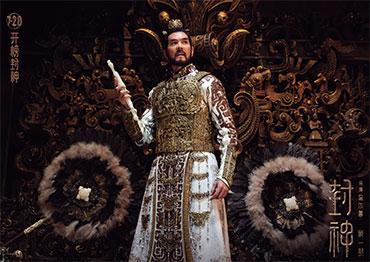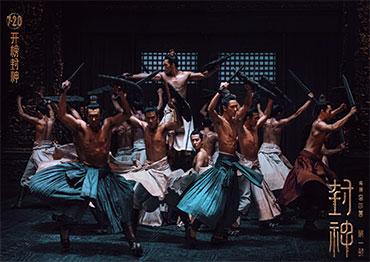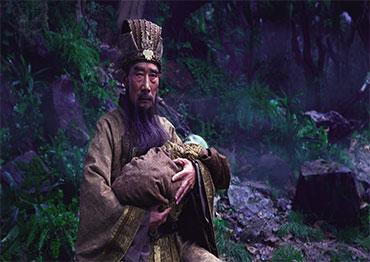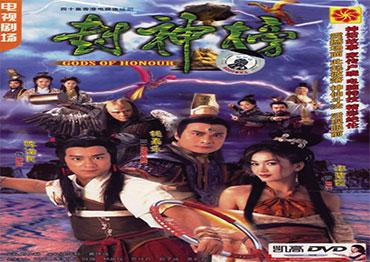While most adaptations focus on Jiang Ziya, an elderly sage and resourceful military strategist, the Fengshen trilogy centers on the story of a young man – Ji Fa, who would become King Wu and found the Zhou Dynasty (1046-256 BCE).
As Ji Fa is not a focal point in the novel, Wuershan told NewsChina that it leaves more room to develop his story about the growth of a young hero, which resonates with contemporary young audiences.
Father figures also play an important role. Fengshen reinterprets the relationship between Ji Fa and Yin Shou, who would become the Shang King Zhou that he eventually overthrows, from avuncular to adversarial. In the original novel, these two characters never meet until the final Battle of Muye in 1046 BCE.
In the film, the crown requires each Shang duke to send one son to the royal court as collateral to ensure their loyalty. Ji Fa, the second son of the Western Duke Ji Chang, was among them. There he grew up with other boys of the aristocracy and trained in combat by military official Yin Shou, who Ji Fa sees as a father figure.
After Yin Shou becomes King Zhou, Ji Fa discovers that his father, Ji Chang, was conspiring with other dukes to overthrow the king. Torn between loyalty and love, Ji Fa is forced to make difficult decisions.
“The core of our adaptation is to bring myths and legends back to human nature. As modern people living in the real world, we don’t have supernatural powers, but we understand fathers and family… Such basic emotions of humanity are something that every one of us can relate to,” Wuershan told Yangcheng Evening News.
Audiences praised the film for subverting the prevalent misogynous narratives in Investiture and its past adaptations. For example, Su Daji, King Zhou’s concubine, has always been portrayed as a scheming femme fatale that spells the downfall of the Shang.
King Zhou, notorious for his debauched cruelty, is often portrayed as Su Daji’s easily-manipulated puppet. It is a standard trope in Chinese drama and conventional: beautiful women of the court like Su Daji are often blamed for the fall of a dynasty, rather than the folly of its emperors.
In Wuershan’s film, King Zhou is no marionette. He is a competent commander-in-chief and unscrupulous royal who murdered his father and elder brother for the throne.
Su Daji is recast as the incarnation of a fox spirit who King Zhou saves purely by accident during a battle. In gratitude, she devotes her supernatural powers to his service – which he uses to fulfill his twisted ambitions.
“The most laudable point about the latest Fengshen film lies in the reshaping of Su Daji. She is no more a Helen of Troy figure. Women are no longer portrayed as the bane of a country’s fall,” “strawberriiia” commented on Sina Weibo.
“The first installment of Fengshen unveils an excellent opening chapter beyond expectations. Very few battle scenes between deities and demons are depicted. Instead, it focuses on the dynamics of multiple father-son relationships and shows how each individual makes choices in a quandary of morality, justice and family. In this story, it is patriarchy itself, instead of women, that leads to the collapse of the dynasty. The film presents a fresh new interpretation of an ancient old text,” “Xu Ruofeng” commented on Douban.
With post-production for the next two installments underway, their release still depends on box-office revenue from the first.
“We never thought of cutting corners – there’s no shortcut for us to take,” Wuershan said. “We are devoting ourselves to plowing an uncertain field, and we’ll harvest it only after all three films have been released.”

 Old Version
Old Version



